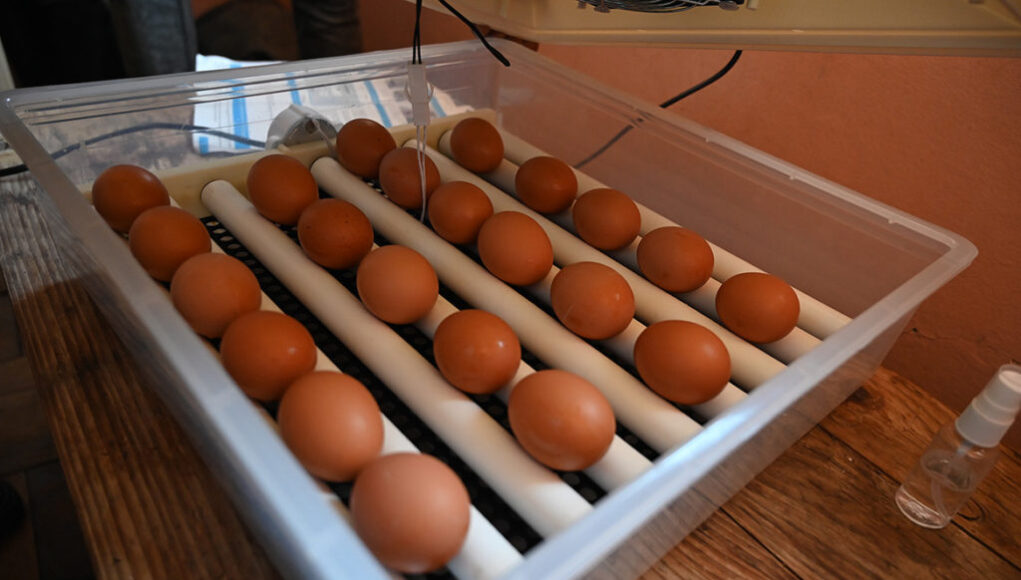For chicken lovers, ensuring the successful hatching of eggs is a rewarding experience. One crucial aspect of this process is the upkeep of the incubator. Proper incubator maintenance not only guarantees a higher hatch rate but also ensures the health and safety of the chicks. In this article, we will delve into comprehensive incubator maintenance tips that will help you achieve the best results. So, let’s get started!

Understanding the Importance of Incubator Maintenance
Before we dive into the maintenance tips, it’s essential to understand why maintaining an incubator is so crucial. An incubator provides a controlled environment for eggs to develop and hatch. If the incubator isn’t functioning correctly, it can lead to poor hatch rates, unhealthy chicks, or even no hatching at all. Therefore, regular maintenance is vital to ensure optimal conditions.
Related: Egg Incubation Guide
Regular Cleaning for Optimal Performance
One of the most important incubator maintenance tips is regular cleaning. Dust, debris, and bacteria can accumulate over time, affecting the incubator’s efficiency and the eggs’ health. Here’s how to clean your incubator:
Step-by-Step Cleaning Process
Disassemble the Incubator: Remove any removable parts such as trays, lids, and fans. This will make cleaning easier and more thorough.
Use Mild Detergent: Clean the parts with warm water and mild detergent. Avoid using harsh chemicals that can leave residues.
Rinse Thoroughly: Ensure all soap residues are rinsed off completely, as they can harm the eggs.
Sanitize: Use a solution of water and vinegar or a recommended disinfectant to sanitize the incubator.
Dry Properly: Let all parts dry completely before reassembling to prevent mold growth.
Related: Storing Eggs Before Incubation
Monitoring Temperature and Humidity Levels
Maintaining the correct temperature and humidity levels is crucial for successful egg incubation. Here are some tips to help you:
Temperature Control Tips
Use a Reliable Thermometer: Invest in a high-quality thermometer to monitor the temperature accurately.
Check Regularly: Make it a habit to check the temperature multiple times a day to ensure stability.
Humidity Control Tips
Use a Hygrometer: A hygrometer will help you monitor the humidity levels inside the incubator.
Adjust Water Levels: Keep a close eye on water trays and add water as needed to maintain the required humidity levels.
Related: Maintaining Humidity
Regular Inspection of Incubator Parts
Regularly inspecting the incubator’s parts is essential to ensure everything is functioning correctly. Here’s what to look for:
Inspecting Mechanical Parts
Check the Fan: Ensure the fan is working properly to circulate air evenly.
Examine the Thermostat: Make sure the thermostat is regulating the temperature accurately.
Inspecting Electrical Components
Check Wiring: Look for any signs of wear or damage in the wiring.
Test the Power Supply: Ensure the power supply is stable and providing consistent voltage.
Proper Egg Handling and Placement
Handling and placing eggs correctly in the incubator is vital for successful hatching. Here are some tips:
Egg Handling Tips
Wash Hands: Always wash your hands before handling eggs to prevent contamination.
Handle Gently: Be gentle while handling eggs to avoid cracking or damaging them.
Egg Placement Tips
Position Correctly: Place eggs with the larger end slightly elevated to ensure proper air cell development.
Space Evenly: Ensure there’s enough space between eggs for proper air circulation.
FAQs On Incubator Maintenance
How often should I clean my incubator?
It’s recommended to clean your incubator after each use to prevent bacterial growth and ensure optimal performance.
What should I do if the temperature fluctuates in my incubator?
Check the thermostat and ensure the incubator is placed in a room with stable temperature conditions. Avoid direct sunlight or drafts.
Can I use any disinfectant to clean my incubator?
It’s best to use mild disinfectants like a water-vinegar solution or those specifically recommended for incubator cleaning.

Conclusion
Proper incubator maintenance is essential for successful egg hatching. By following these incubator maintenance tips, you can ensure a higher hatch rate and healthier chicks. Remember, regular cleaning, monitoring temperature and humidity, inspecting parts, and proper egg handling are key to maintaining a well-functioning incubator. For more detailed information on egg incubation, visit this external guide.
This article contains affiliate links. We may earn a commission at no extra cost to you.











